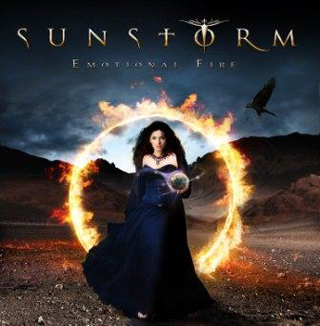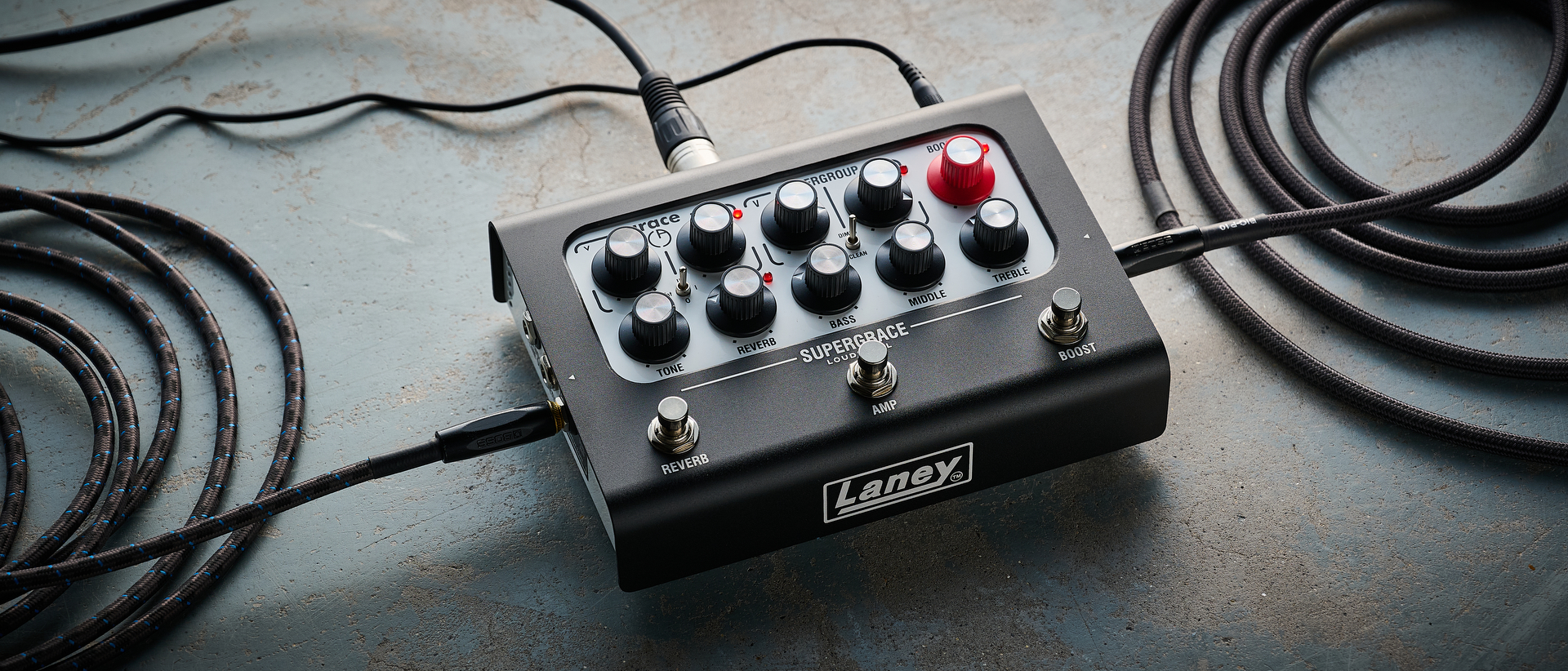Interview: Legendary Rock Frontman Joe Lynn Turner Discusses New Sunstorm Album, 'Emotional Fire'
All the latest guitar news, interviews, lessons, reviews, deals and more, direct to your inbox!
You are now subscribed
Your newsletter sign-up was successful

Joe Lynn Turner didn’t set out to become one of the most recognizable voices in rock.
His goal was to be a guitar player, in addition to singing and songwriting, but it didn’t take long for his dynamic range to push him to frontman status — fronting bands led by guitar heroes.
So much for playing lead, but the gigs served him well. Turner has recorded more than 60 albums as a band member and solo artist, and the years have been kind.
He’s still recording — his new album, Emotional Fire, is his third Sunstorm project with producer Dennis Ward — and his voice is as strong as ever.
Never satisfied with time off, Turner stays busy on the road and in the studio. His experience as a session vocalist prior to entering the rock music realm, and his childhood years listening to a variety of genres from country to R&B, helped expand his musical boundaries. As a result, he is now exploring a number of creative avenues, which he discusses in this interview.
GUITAR WORLD: The perception of you is primarily as a vocalist, although you have been a prolific songwriter all along. Are the Sunstorm projects helping to turn that around a bit?
I don’t know. I think so. I didn’t put any of my songs on this new album. I think the first two really spoke volumes about it because they had all these songs from the ’80s, and I still have some that deserve to be recorded and heard. I hope so. Even with Rainbow, Fandango and Deep Purple, I was involved with the writing, I co-wrote, so I hope it has been established prior to this.
All the latest guitar news, interviews, lessons, reviews, deals and more, direct to your inbox!
You’re also a guitar player, although ironically, a great portion of your career revolved around legendary guitarists. What did you learn from them? How often do you play now?
It’s kind of difficult to play when you’ve got Ritchie Blackmore or Yngwie Malmsteen. All I ever wanted to do was play guitar, and it’s very ironic that I ended up becoming one of these premier vocalists, so life is strange at best. At the same time, I really want to get back to it in any way I can, possibly in this new project coming up where I can be second guitarist. Little by little.
Sometimes life turns you a little and gives you what I call a perfect twist. I didn’t even know I could sing. I was a guitar player and a background singer and now I’m a lead singer and background guitarist.
It’s rumored that you’re quite the collector.
I have a lot of Gibsons and Fenders and custom-made guitars, PRS, Dean, but mostly vintage, which are now very much sought after. I’ve been collecting all my life. I stopped actively collecting maybe 15 years ago. You have to always have a go-to.
Nowadays they’re making technologically fine instruments, the technical aspects have been refined. But if you can get it set up where you’ve got a ’52 vintage Telecaster or Strat, those are going to be the finer guitars.
Some guitarists, people like Joe Bonamassa, they use mostly the vintage stuff all set up so that they stay in tune, because that’s the problem with the old guitars. They don’t stay in tune as well, and when you’re onstage you have to have two guitar roadies or something. It’s difficult and it adds to the costs.
What other projects are you involved with?
There are quite a few things. I’m doing a couple of tribute records because they’re fun and quick, just songs. I did a Who song, I’m doing a Supertramp song, I’m working on a country album because I grew up with country music and I’m getting back to the roots. I think this is going to turn out great.
The business is very tough all over, as you know, but I think if you’ve got the goods, doors will open. A rock opera that was written about ten years ago that deserves to see the light of day — I’m working on that with the writers. So a lot of things in the works — a soundtrack company, a television show, there’s a couple of things with rappers. That would completely bring me into a different market.
You grew up on country music?
My grandmother loved all the original country artists, like Hank Williams, Lefty Frizzell, Merle Haggard, she played American country music and of course Italian folk music in the house all the time. I grew up singing these songs, and then Elvis and the Beatles came out and that changed everything.
The new release follows an interesting concept of looking at your history as a session singer. How did you come up with the song list for this album?
Actually, I couldn’t, because I was in Turkey at the time and I couldn’t bring in my music, so Serafino [Perugino, president, Frontiers Records] brought in the tunes. He brought in two Michael Bolton songs and a Cher song that I originally sang background on. I think he was smart in doing that. That’s the center of the album.
How key was session work to developing your vocal style and strength?
There was a point, speaking of Michael Bolton, for example, we knew each other in the clubs in New York and he was singing jingles for Budweiser and Gillette. There was a big market back then for actual singing on jingles. When he wasn’t able to do it much anymore, he turned me on to that and I became a huge jingle singer for TV. You can disguise your voice and sing in different timbres and tones and it really teaches you a lot.
Also singing group, background singing, you have to fit inside of something, and a lot of people don’t know how to do that. They don’t understand it. It sharpened all my skills, my ears and my techniques. You have to match your tone to the people you’re singing with. You look at each other, help each other, you know the terminology and it becomes real camaraderie. It sharpens all of your creative powers because you get such a different angle on things.
That was a very big help in everything. Now they use stock music or the younger alternative or pop-sounding voices, but there’s not much of it. There’s no more “See the USA in your Chevrolet.” It used to be huge. I’m thankful that I had that opportunity during those times, because that’s pretty much gone too.
Your work crosses so many genres. Is that what has enabled you to survive and thrive for several decades, versus singers and musicians who lock into one style and stay there?
I think so. I think it has a lot to do with it. I think you have to be a chameleon in a way, you have to be good at everything you do, and you can build longevity. I can see myself singing Sinatra songs in 20 years. When you’re myopic and have only one voice, one ability, you can’t stretch out into other areas artistically. You have a lot more chances if you can do many things.
— Alison Richter
Alison Richter interviews artists, producers, engineers and other music industry professionals for print and online publications. Read more of her interviews right here.
Alison Richter is a seasoned journalist who interviews musicians, producers, engineers, and other industry professionals, and covers mental health issues for GuitarWorld.com. Writing credits include a wide range of publications, including GuitarWorld.com, MusicRadar.com, Bass Player, TNAG Connoisseur, Reverb, Music Industry News, Acoustic, Drummer, Guitar.com, Gearphoria, She Shreds, Guitar Girl, and Collectible Guitar.
